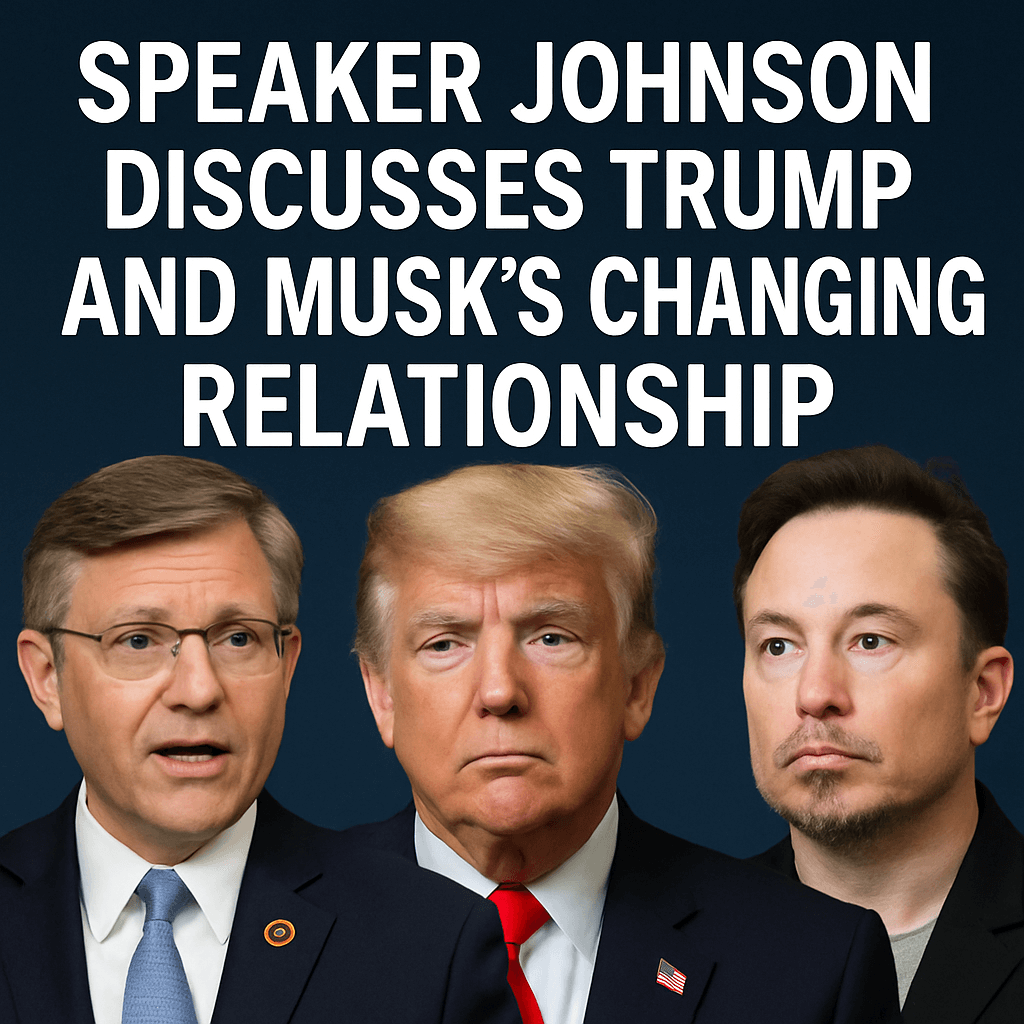Speaker Johnson Discusses Trump and Musk’s Changing Relationship

House Speaker Mike Johnson recently stated that former President Donald Trump is displeased with Elon Musk after the tech mogul publicly opposed Trump’s proposed spending bill. The initiative, touted by the White House as a measure that could reduce the federal deficit by $6.6 trillion over the next decade, has become a contentious issue between the two influential figures.
Background on the Spending Bill
The spending bill in question, referred to as Trump’s “big, beautiful bill,” aims to extend existing individual income tax breaks slated to expire soon while introducing new provisions, including the elimination of taxes on gratuities. Significant financial allocations are earmarked for enhancing national security, border control, and deportations. Critics, however, warn that financing these proposals could lead to slashing tax breaks for green energy initiatives established during the Biden administration and imposing new work requirements for beneficiaries of Medicaid and the Supplemental Nutrition Assistance Program (SNAP).
Details of Musk’s Position
Elon Musk took to his social media platform, X (formerly Twitter), to voice his opposition to the spending plan, labeling it a “massive, outrageous, pork-filled” initiative, and critiquing its implications for the federal deficit. Musk’s comments reflect a broader concern among some fiscal conservatives regarding excessive government spending and its potential adverse impact on the economy. He characterized the bill as the “Debt Slavery Bill,” claiming that it would undermine fiscal discipline achieved by his efforts at the newly formed Department of Government Efficiency (DOGE).
The Shifting Relationship Between Trump and Musk
Trump and Musk’s relationship has been notably intricate, evolving from mutual support to significant tensions. Initially, Musk served as an advisor to Trump, but their alliance soured after Trump’s withdrawal from the Paris Agreement. Their interactions became increasingly adversarial, particularly in 2022, when Trump publicly criticized Musk in pointed social media posts, calling him a “b****t artist” and echoing sentiments that he had sought Trump’s assistance only for financial gain.
However, this turbulent relationship saw a revival in 2024, particularly after a failed assassination attempt on Trump. Musk actively sought Trump’s re-election through various channels, including substantial financial contributions that reportedly amounted to approximately $288 million through his America PAC. Such actions suggest that despite past grievances, Musk recognized the political influence and relevance of Trump as a key figure in American politics.
Speaker Johnson’s Remarks
During a press conference, Speaker Johnson mentioned that Trump was not pleased with Musk’s sudden reversal on the spending bill following their earlier discussions. Johnson conveyed, “It did surprise me, frankly. I don’t take it personal; we don’t take it personal. Policy differences are not personal.” His statements indicate a recognition of the complex interplay between personal relationships and policy disagreements in the political arena.
Economic Implications of the Spending Bill
The Congressional Budget Office (CBO), a nonpartisan analytical body, has projected that the spending package would lead to a $3.7 trillion tax reduction but also cause an increase in deficits amounting to approximately $2.4 trillion over the next decade. Moreover, the CBO estimates that around 10.9 million additional Americans may find themselves without health insurance as a consequence of the proposed changes, highlighting the potential repercussions on public health policy amidst the focus on fiscal austerity.
A Broader Perspective on Fiscal Policy and Party Dynamics
- Republicans’ Approach: The proposed bill signifies a shift in the Republican strategy surrounding fiscal conservatism. While it aims to stimulate economic growth, the potential for increased federal debt raises questions about long-term viability.
- Democratic Response: Democrats express concern over the bill’s implications for social safety nets and environmental efforts, arguing that the cuts to green energy tax breaks could hinder progress toward lower carbon emissions.
- Public Pouring over Impacts: Voter sentiment towards this bill could have far-reaching implications for the 2024 electoral landscape, shifting focus towards economic concerns in the wake of inflation and public spending debates.
Conclusion
As the political climate continues to evolve, the relationship between Trump and Musk remains a focal point of interest for many observers. The implications of Musk’s public stance on Trump’s spending bill may reverberate through future party dynamics and policy debates, making close monitoring of both figures essential.
Source: fortune